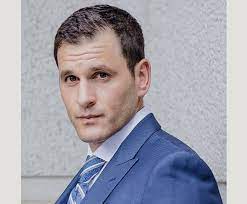


Katie Bertram · Kieran Murphy · Jordan Strokovsky
$4,000,000 Medical Malpractice Verdict – Shared Decision Making as a Model for Prosecuting Informed Consent Claims and Presenting Human Damages
![]() July 31, 2024 ||TLU n Demand
July 31, 2024 ||TLU n Demand
In 2018, the patient, who was an active 35-year-old man, developed Crohn’s disease and was placed on high-dose steroids by his initial gastroenterologist as a rescue medication to help with symptoms. The patient was then transferred to MedStar Georgetown’s specialty IBD (“inflammatory bowel disease”) clinic for treatment and the IBD specialist left him on the high-dose steroids without informing him of the risk of increased toxicity with longer courses of high-dose steroids and without offering any alternative treatment plans. The patient’s symptoms didn’t improve and despite repeated calls and messages to the clinic, he wasn’t seen for several months while he remained on steroids. He was eventually called in by a nurse practitioner who got him off the steroids and onto long term biologic maintenance medications. Shortly after transitioning off the steroids, the patient developed avascular necrosis, which is death of the hip bones caused by high dose steroids. This led to debilitating hip dysfunction and pain, which he endured while living alone for approximately 15 months during COVID while waiting for surgical intervention. He eventually required bilateral hip replacements at the age of 36.
The defense brought in a jury consulting team from California to assist with jury selection. The case was defended aggressively, with the main defenses being:
(1) the patient was told generally about the risk of avascular necrosis so there was no need to inform on further details,
(2) the IBD clinic didn’t do anything wrong,
(3) his necrosis was due to his underlying Crohn’s disease and not the steroids, and
(4) he got the hip replacements, he has no ongoing medical needs, and his hip replacements are top of the line and will never need to be replaced, so he has no damages.
This trial made heavy use of patient portal messages which proved to be quite helpful and made it hard for the defense to explain all the unanswered calls and emails. The plaintiff’s team also made a few great trial graphics, which helped bring the damages to life. There were no economic damages offered to the jury - it was solely tried on non-economic damages given the lifestyle changes and limitations imposed on the patient (who was a former elite college soccer player) and the pain and suffering he went through when his hip bones collapsed and he was home bound while he had to wait a year and a half (during COVID) before they could perform the hip replacement surgeries.
The trial lasted over two weeks. The jury found that the hospital was negligent and failed to obtain informed consent to the treatment plan. They awarded $2,500,000.00 for physical pain and suffering and $1,500,000.00 for emotional distress, for a total verdict of $4,000,000.00.
If you can't attend Live, Watch On Demand